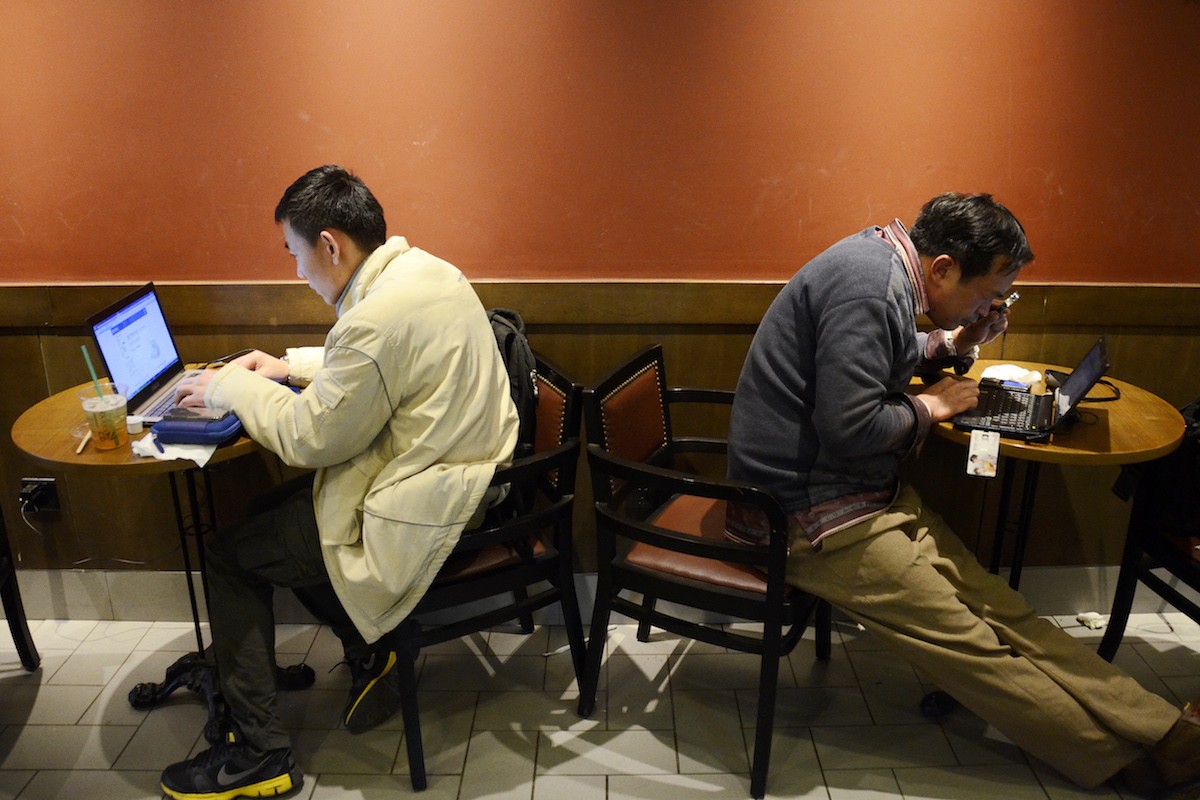Father Joseph started using tools to circumvent strict internet censorship in China, because he wanted to access more information about the Church and news concerning the mainland not being reported on official media.
“The CCP [Chinese Communist Party] official media reports only good news and sweeps the bad under the carpet, especially religious issues, said the priest from northern Hebei province,” Father Joseph told ucanews.com.
“Many things are suppressed and blocked by the CCP, which we can only find out about through foreign media,” he said.
These restrictions have resulted in many internet users in China relying on virtual private network (VPN) services that enable them to peek over the infamous “Great Firewall” and access blocked sites such as Google, Facebook, Twitter and YouTube.
This has seen a game of cat-and-mouse unfold between the authorities seeking to restrict freedom of information on the one side and VPN service providers and their customers looking to shed mind controls and satisfy curiosity on the other.
The Great Firewall has been blocking IP addresses of VPN networks on a regular basis, but this is often overcome by people accessing VPN networks by switching their IP address.
Father Joseph says he was once “taken for tea” by government officials and warned for using a VPN.
The priest then bought a new mobile phone and changed his mobile phone number to avoid being found and tracked.
If there was no VPN, he says it would be impossible to find out more about the Church.
“Like a frog at the bottom of a well, every day I wouldn’t be able to see anything else except a small piece of sky,” he said.
Accessing ‘sensitive’ information
It’s unclear how many people are using VPNs in China, but the likelihood is there are many, but not a majority, according to Patrick Poon Kar-Wai, a China researcher at Amnesty International.
Users will include ordinary people and business people needing to keep tabs on what is going on overseas. Even government officials use them on the sly, he told ucanews.com.
However, VPN providers, such as ExpressVPN and NordVPN, as well as users are at risk of being charged under the Cybersecurity Law if they spread information the government deems extra sensitive, which makes government critics and human rights defenders more vulnerable, he says.
People like Paul Li, A Catholic from Sanyuan in Shaanxi, who says he has gathered a better understanding of issues connected to faith and democracy and their influence on the mainland by accessing site like ucanews.com and the New York Times via a VPN recommended by an old classmate involved in international trade.
Of particular interest to him at present is the anti-extradition and pro-democracy protests in Hong Kong.
“It’s shocked me. I didn’t expect the young people in Hong Kong to be so determined to uphold justice,” Li said, adding he hoped that young people in the mainland “stand up and fight for justice, democracy, and faith.”
Although he is worried about being caught using a VPN, Li said: “The darkness won’t remain dark forever. As long as there’s a bit of light, darkness can be defeated. I’m willing to be this light.”
Without a VPN, he said he may never have had his eyes opened and seen the reality of the world and recognized the true face of the Chinese Communist Party.
Wang Donghai from Chengdu in Sichuan, has similar views. He is a trader who needs to use VPN to contact his customers overseas.
This can be awkward “it’s often disconnected,” and people are often warned against using VPNs he said about the government crackdowns.
Every time he returns home after being on business, he says he feels things are missing. “Our country is not comparable with foreign countries. In the mainland, you can only see what the CCP wants you to see. You may not be able to see those you want to see.” he said.
Through VPN, Wang says he has learned what true democracy and freedom is and realizes the CCP has been deceiving people.
Joseph Zhang, a Catholic from Cangzhou, in Hebei province never uses VPNs to breach the Great Firewall as he does not know how to access them.
Instead he obtains information through messages forwarded to him. “Netizens put more sensitive content into picture format before forwarding it, because they are afraid of being found by the internet police,” he told ucanews.com
In his case such information is mainly about the Church, especially the pope and the Holy See, and also attitudes the international community has towards the persecution of the Church by the authorities.
He admits that if no one forwards information to him, he would be deaf and blind because he knows that as far as government reports are concerned “such information is not true.”
For Father Joseph, the Hubei priest, this deceit will not go away and believes attempts to block access to information will only get worse.
The CCP will likely “seal off the country again and return us to the 1950-60s, so that it can continue to deceive people,” he said.







